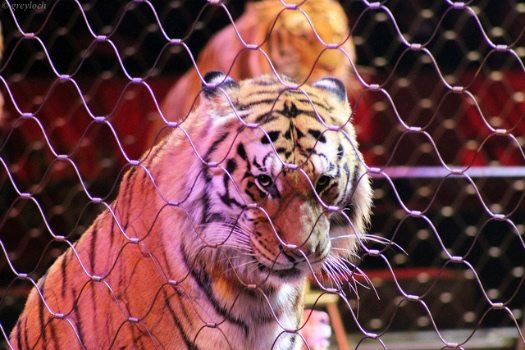
May 26, 2017; CBS News and The Dodo
In May, the Ringling Bros. and Barnum & Bailey Circus (Ringling) ended a nearly 150-year tradition as the show, featuring live animal acts, shuttered its doors forever. While news outlets around the world covered the show’s elephants arriving at a Florida sanctuary for retirement, a much different fate is apparently in store for the big cats that performed with the show.
According to CBS, on May 26, 2017, the U.S. Fish and Wildlife Service published notice that Feld Entertainment, the multi-billion-dollar parent corporation of the recently closed Ringling Bros. and Barnum & Bailey Circus, is applying for an Endangered Species Act permit to export eight tigers back to Zirkus Crone in Germany, which has recently had its own share of abuse allegations. Feld’s application indicates it intends to export six lions and a leopard as well.
Sign up for our free newsletters
Subscribe to NPQ's newsletters to have our top stories delivered directly to your inbox.
By signing up, you agree to our privacy policy and terms of use, and to receive messages from NPQ and our partners.
The Animal Legal Defense Fund (ALDF) opposes the move, and told the Dodo that the animals are being thrown into a pay-to-play system where their best interests may not be taken into consideration. Instead, the decision could be rubber-stamped by the government agency if a public uproar doesn’t ensue.
For years, the focal point of criticism against Ringling has centered on treatment of the show’s elephants, with reports of brutally inhumane training techniques, suspicious animal deaths, and dangerous repercussions from unnatural living environments plaguing the show. However, a report last year noted that the big cats that were part of the circus faced an equally hellish existence, and the ALDF doesn’t want that life to continue abroad for the lions, tigers, and leopard.
The Animal Legal Defense Fund said in a statement on the website and to several news outlets, “The curtain has come down on Ringling Bros. and an enlightened public is turning away from the outdated notion that it’s acceptable to use endangered species as entertainment props,” Stephen Wells, executive director of ALDF, said. “After spending years being carted around in cramped transport cages for 50 weeks of the year, it’s time for Ringling to let these tigers live out their lives at a reputable sanctuary where they can experience the space, habitats and peace they need and deserve.”
Founded in 1979, the ALDF’s mission is to protect the lives and advance the interests of animals through the legal system. ALDF will file administrative comments to oppose the export permit. The public has 30 days to comment on the application. The international nonprofit is urging individuals to visit their website and leave comments for the U.S. Fish and Wildlife Services on Feld’s application to ship the tigers abroad.—Carrie Collins-Fadell












